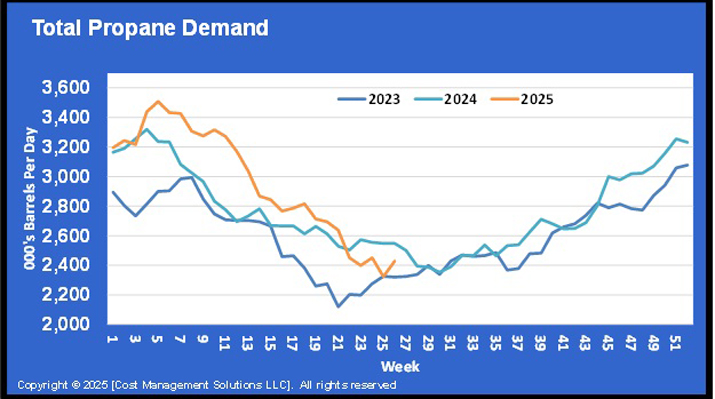One state’s efforts to address an aging industry
Mark Delehanty has a friend who recently received a rather interesting – and somewhat amusing – phone call from an insurance company. The insurance company called to ask about an older-than-usual bobtail driver.
Says Delehanty: “The insurance company asked, ‘We see so-and-so is 72 years old. Can he still drive the truck?'”
The 72-year-old driver is very much still capable of handling a bobtail, Delehanty’s friend confirmed to the insurance company. But the fact that the driver is capable isn’t the point Delehanty takes away from his friend’s encounter over the phone.
Instead, Delehanty shares this story as a means to point out that the propane industry is one largely made up of older people. And, in some extreme cases like the 72-year-old bobtail driver’s, the industry is one that’s made up of some extremely old people by traditional working standards.
“If you look at a propane company, everybody’s old,” says Delehanty, a 37-year-old who launched his own propane business, Independence Propane, in Green Lane, Pa., last summer. “It’s kind of an elephant in the room for the industry, but there, I’ve said it.”
Although Delehanty says contributions from people like the 72-year-old bobtail driver are surely welcomed and appreciated, Delehanty believes the propane industry’s average age is a potential problem.
To address the issue, Delehanty, president of the Pennsylvania Propane Gas Association (PAPGA), formed a task force with others to develop strategies that can attract young people to propane careers. The task force, called Generation Next, had one meeting in the spring, and it planned to gather again for the association’s next meeting in the fall.
About 10 people are on the task force, Delehanty says, and it’s made up mostly of people less than 40 years old. The task force’s ultimate goal is to get more young people involved in management roles within the association and propane companies.
“If we don’t see a change or an influx of youth, it really scares me that consolidation will really start to roll,” he says. “You’ll have more accidents because of a lack of training and a lack of real-world experience. That’s what your older group of people has: the real experience.
“We want people to get involved in the industry so that 10 years down the road, when people are retired or have sold their businesses, there’s someone to step in.”
Delehanty adds that having fewer people involved in the propane industry means less time for training, which reduces efficiencies and subsequently forces companies’ costs to rise.
“If your costs go up, the price of propane goes up,” he says.
Delehanty doesn’t think there’s one defining reason why the industry isn’t as youthful as it once was. It’s probably an older industry, he says, for a lot of reasons. So the PAPGA task force is challenged with identifying the various reasons and developing solutions.
“What do we need to do to get people involved in their business and into the next level?” Delehanty asks. “Is it some kind of training? Is it sharing people, like taking Bob from ABC Propane and letting him spend two weeks at 1-2-3 Propane, and vice versa? Do we do things like that so people [remove] their blinders?”
Delehanty won’t go as far as labeling the industry’s aging issue as a major problem, but he’s definitely intrigued by potential solutions.
“I think some of it is the current generation doesn’t want to let go,” he says. “A lot of them are making money. If your business is making good money, why are you going to turn it over to your kids?”
About 10 years ago, Delehanty says, the heating, ventilation and air conditioning (HVAC) industry faced the same questions propane currently does. The people working in HVAC were getting older, and the older people did not want to learn about new technologies.
Still, the HVAC industry recognized it was getting older, so it formulated strategies to get younger.
“They went to tech schools and sponsored [them],” Delehanty says. “They went to trade groups to get people involved. Today, those kids coming out of high school who are now 30 now have the training to work on the modern equipment – and the desire to be in the industry from the beginning because they started apprenticeship programs.”
Delehanty has ties to the plumbing industry, as well, and says it faced the same dilemma as the HVAC industry. Plumbers, however, didn’t do nearly as good of a job attracting young people as HVAC when a need presented itself.
“Everybody was getting old and they didn’t attack it the same,” Delehanty says. “The couple plumbers I know say the same thing – that kids don’t want to work. [I say] that’s because you’re not looking for the right kids.
“There are a lot of kids out there who want to work, but the generation today was brought up on a computer. Those kids don’t want to work [in a blue-collar industry], so you have to really search to find them. It’s up to the industry to go find them, not for those kids to seek out the industry.”

















Mark brings up a very good point and it’s an observation that isn’t easy to openly discuss…kudos to Mark for bringing this to light and beginning a conversation of the possible ramifications down the road (pun intended)…a good, thought provoking article – thanks!!!
We need to be intentional in hiring employees since balance (youth vs. experience) is the key.
this is the same issue you can find in any field, industry or organization — the need to keep new blood coming in and keep things moving. I’m a member of a local LIONS club and have been for 35 years plus, and I’m still one of the younger members. We try hard to attract younger people to join our club and it is a constant effort. The same thing in the propane industry and everywhere else, it takes constant effort.